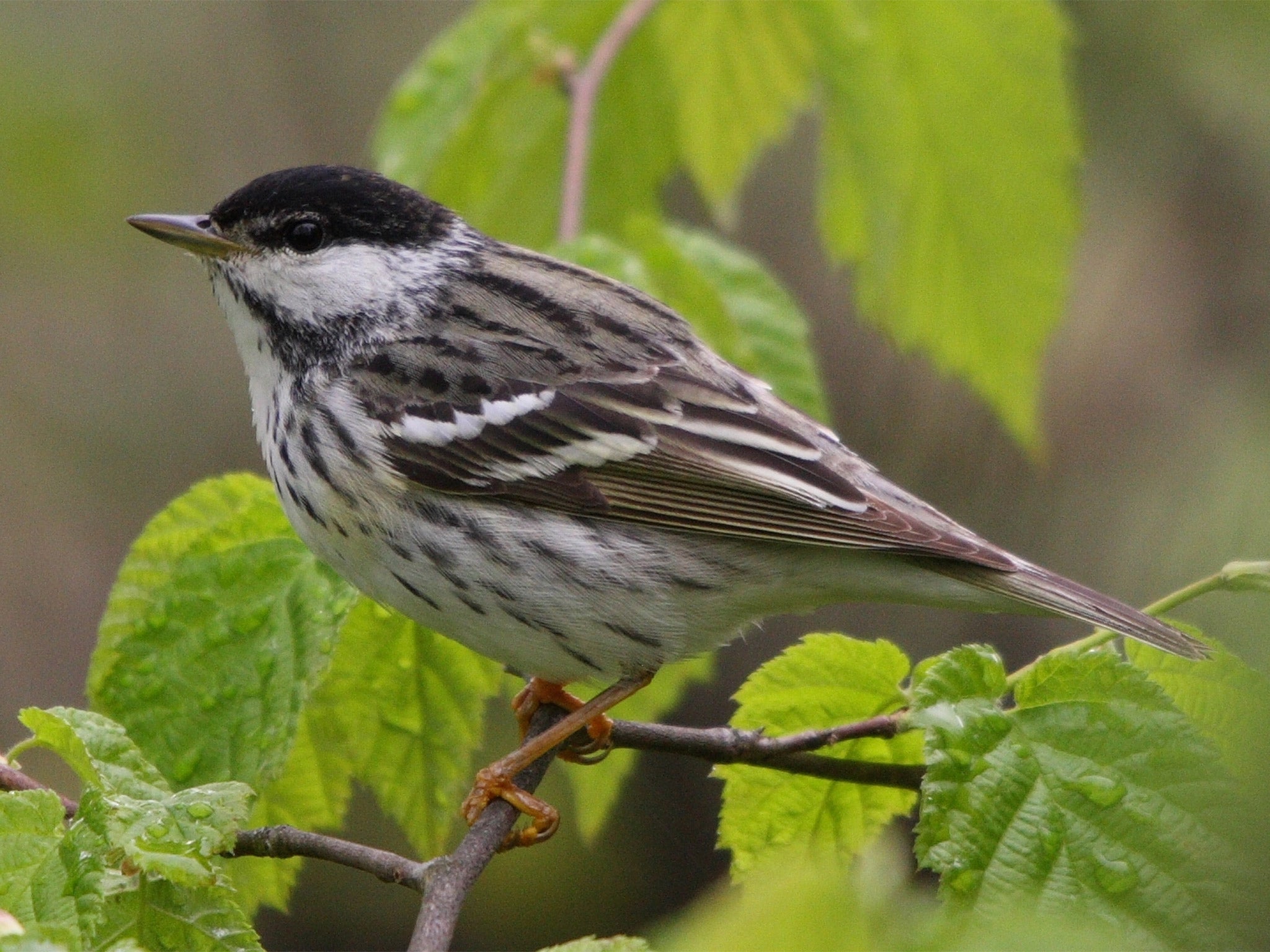'Plump' birds have better sex, scientists say
But slim birds might beat them to it

Ornithologists have long wondered why some migratory birds carry a little extra weight while embarking on epic journeys across thousands of miles.
Now a new study suggests it's mainly about sex, with birds that stock up on food “likely to experience enhanced reproductive performance”.
Researchers from Hobart and William Smith Colleges in New York State studied information about the weight and condition of 12 different species of warblers as they arrived at a bird-ringing station on the south shore of Lake Ontario over a period of 14 years.
Some of these warblers fly from as far south as Argentina to breed in the forests of Canada. After the breeding season, blackpoll warblers can fly from the west coast of Canada to the Atlantic coast, then across the open ocean to Brazil.
It had been thought that carrying extra weight – a particular burden when flying – might be a form of insurance against trouble on the way, such as being blown off course by a storm.
But one of the researchers, Professor Mark Deutschlander, of Hobart and William Smith Colleges, said their study, which was published in the journal The Auk: Ornithological Advances, suggested the songbirds were thinking mainly about one thing: sex.
The data showed the birds arriving early in the spring, when there is less food, were lighter than those that arrived later, when there is more to eat.
The fact that the birds' weights mirrored the amount of food available suggests that they were not particularly stocking up on supplies just in case they needed it.
And female birds tended to arrive later in the season and be heavier than males, which supports the idea that their weight is more about reproduction because females need more energy to produce eggs than males require to make sperm.
"Breeding is so imperative, it's all about breeding and reproducing," Professor Deutschlander said.
Female birds, he said, citing previous studies, tended to be "energy maximisers", trying to ensure they were in a good physical condition for breeding.
However, for males there is a play-off between spending time building up their bodyweight and arriving early on the breeding ground to secure their territory.
Getting there early means flying long and hard, using up energy and potentially arriving in a poor condition that might make it harder to impress a female or see off a rival.
Professor Deutschlander said there might be a "trade-off" between the two different strategies, leading two different types of males, one adopting a slower, safety-first approach and the other a high-risk dash to be the first to arrive.
"You as an individual might not make it, but your chances of breeding [if you manage to survive], at least as a male, might be higher," Professor Deutschlander said.
"There might be the risk-prone birds, who say 'I'm just going to go for it' and arrive early because the chances of breeding are higher versus the birds that take their time and arrive in better condition."
He added that such long journeys were particularly arduous for small birds like warblers.
"They cannot stop flapping their wings, they don't do gliding," Professor Deutschlander said.
"There's feeding enough to give you the fuel you need to stay aloft, but as you eat fuel, you eat weight – there's definitely a fuel-load issue ... but they can get quite plump."
The two competing theories about why birds carry extra weight were first suggested by ornithologist Professor Frank Moore, of Southern Mississippi University.
Commenting on the new study, he said: “As the authors point out, individuals that arrive on the breeding grounds with surplus fat stores are likely to experience enhanced reproductive performance, regardless of sex.”
Professor Deutschlander added that their study also showed the wealth of information that was available for ornithologists.
“I think this paper really illustrates the types of questions and analyses that can be addressed with archived banding [ringing] data,” he said.
“There are lots of data being collected at bird observatories, and much of it is waiting for interested researchers and students to use that data to address questions about bird migration.”
Join our commenting forum
Join thought-provoking conversations, follow other Independent readers and see their replies
Comments
Bookmark popover
Removed from bookmarks